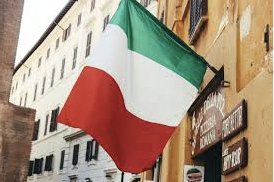Canna reporter has all the details
The change that Giorgia Meloni’s government wanted to make to Italy’s cannabis law and which intended to ban the production and trade of light cannabis was temporarily annulled. This is excellent news for the sector, because, if approved, the change would have compromised the work of around 3.000 companies and caused the loss of more than 15.000 jobs.
“Thanks to the support of the main agricultural organizations we managed to cancel the amendment that attempted to ban industrial hemp”, confirmed Canapa Sativa Italia (CSI), one of the associations that acted to put an end to “this madness”.
“To try to recover some votes in the European elections, 3.000 companies will close and 15.000 workers will be made redundant. If the State doesn’t think about it, the Mafia will!”
But let’s take a step back. Because while companies and consumers rightly celebrate the result obtained, the review was not withdrawn, just set aside. And it could be voted on again in the future.
Prohibition of light cannabis: what the government’s change predicts
The objective of the amendment presented by the Meloni government, which wants to intervene in law no. 242 of 2016, which “promotes the supply chain and cultivation of hemp” in Italy, is to prohibit the production and marketing of so-called light cannabis, which It is characterized by a low percentage of THC, always less than 0,2%.
Italy has around 3 thousand companies and 15 thousand workers who make a living from the light cannabis sector
In particular, the proposed change aims to equate light cannabis, which can currently be sold in authorized stores, with ‘normal’ cannabis, which is present on the list of controlled substances mentioned in the Consolidated Law on Narcotic Substances.
“The import, transfer, transformation, distribution, trade, transport, sending, dispatch and delivery of cultivated hemp inflorescences, even in semi-finished, dried or crushed form, is prohibited”, reads the text of the proposal, but also “products containing such inflorescences, including extracts, resins and oils derived therefrom”. And for those who do not comply with the provisions, “the sanctions provided for” by the Consolidated Narcotics Law will apply.
The opposition of Italian associations: “thousands of workers at risk”
A few hours after the news of the change, sector associations were quick to express their total disagreement. The association ICI (Italian Hemp Entrepreneurs) highlighted the serious consequences that the restrictions would have for the entire Italian economy, in particular:
● Loss of employment. In fact, the hemp sector in Italy has generated thousands of jobs in recent years, especially among younger people. And “the introduction of these restrictions would put many of these jobs at immediate risk, causing an increase in unemployment and a significant loss of specialized skills in the sector”;
● Reduction of turnover. Because Italian companies record a turnover of hundreds of millions of euros per year, consequently “the economic impact of the restrictions would be devastating, leading to a drastic reduction in revenue and putting the very survival of many companies at risk”;
“The association – finally – asks the government and legislators to reconsider these changes, taking into account the economic and employment importance of the industrial hemp sector.” Especially because light cannabis and its derivatives do not have any psychotropic effect.
Italy retreats in an increasingly green European scenario
Although a few days ago Germany authorized the country’s first Cannabis Club, this behind Italy would be an unprecedented setback, which would be out of place in a European panorama increasingly open to legalization. But what is the real reason for this change?
Read the full report




















